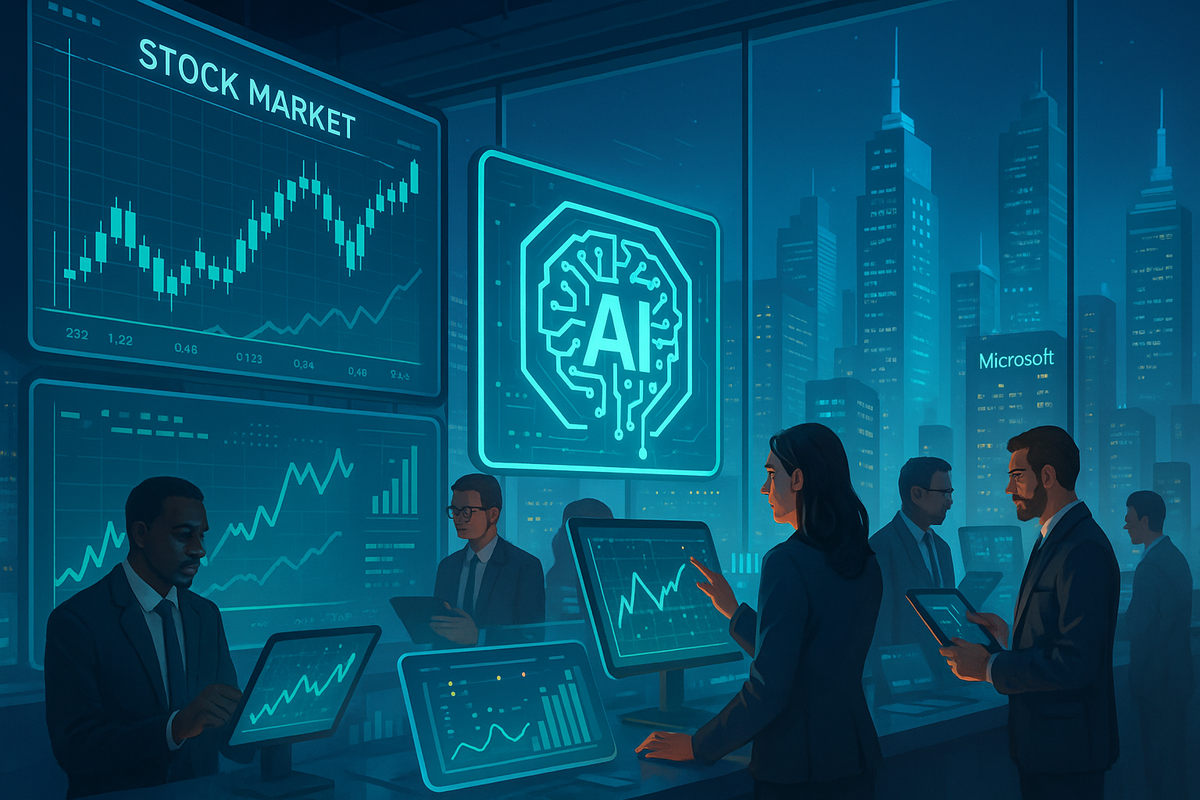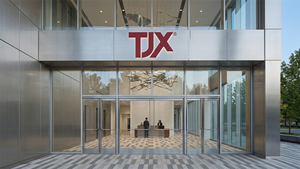
The stock market is currently experiencing a profound transformation, driven by the relentless rise of Artificial Intelligence (AI). This technological revolution is not merely a fleeting trend but a fundamental shift, propelling unprecedented growth within the tech sector and attracting colossal investments from industry titans. The immediate implications are clear: AI is reshaping market dynamics, corporate strategies, and investor sentiment, promising to broaden its economic benefits far beyond its initial tech strongholds.
The AI Computing Revolution: What Happened and Why It Matters
The public unveiling of generative AI models in late 2022 marked a pivotal moment, unleashing a wave of innovation and investment that continues to reverberate across global financial markets. AI has rapidly emerged as a dominant force, fundamentally altering market dynamics and capturing a significant share of investor attention. The current surge in AI-related stocks is a defining characteristic of today's financial landscape, with companies leveraging AI strategies and partnerships to bolster performance and attract significant capital.
The market's reaction has been swift and decisive. AI-centric firms have witnessed unprecedented valuation spikes and continue to maintain high investor interest. This was vividly confirmed during the Q2 2025 earnings season, where AI was identified as the primary catalyst for record-breaking growth across the tech sector. Companies like Microsoft (NASDAQ: MSFT), Alphabet (NASDAQ: GOOGL), and Meta Platforms (NASDAQ: META) reported some of their best numbers in years, directly attributing their success to AI integration and demand. AI is no longer just a software application; it is rapidly evolving into critical infrastructure for businesses and governments worldwide. This paradigm shift is also driving a massive move towards physical automation, exemplified by companies like Amazon (NASDAQ: AMZN) deploying over a million warehouse robots, showcasing AI's tangible impact on operational efficiency and productivity.
The AI Gold Rush: Winners and Those Who Must Adapt
The AI revolution has created clear winners in the stock market, primarily among companies at the forefront of developing, deploying, or leveraging AI technologies. However, it also presents a stark challenge for those who fail to adapt, risking obsolescence in an increasingly AI-driven economy.
Nvidia (NASDAQ: NVDA) stands as the undisputed champion of the AI era thus far. Its stock has surged dramatically due to its near-monopoly in AI chip manufacturing. Nvidia's Graphics Processing Units (GPUs) are the preferred choice for training and running complex AI models, powering everything from advanced scientific research to self-driving cars. With a market share ranging from 70% to 95% in AI data center processors, it is incredibly difficult for competitors to switch to rival ecosystems. Nvidia's data center segment, which includes its crucial AI chips, was the primary growth driver for fiscal year 2025, generating an astounding $115.2 billion in revenue, a 142% year-over-year increase. The company's overall revenue jumped 114% to $130.5 billion in fiscal 2025, with earnings up 147% to $2.94 per share, solidifying its position as a robust investment rather than a speculative play.
Microsoft (NASDAQ: MSFT) is making colossal investments in AI infrastructure, signaling its deep commitment to leading the AI charge. The tech giant plans to spend over $80 billion on AI data centers to accelerate the adoption of its Azure AI and Microsoft Copilot offerings. This massive capital expenditure, including a projected $30 billion in the next quarter alone, aims to significantly enhance its AI capabilities. Microsoft's Azure cloud computing platform has been a significant growth driver, with revenue increasing by 39% in constant currency by the end of fiscal year 2025, largely outperforming expectations due to strong AI demand. Analysts remain highly optimistic about Microsoft's future, with price targets reflecting strong confidence in its ability to capitalize on AI.
Meta Platforms (NASDAQ: META) has seen its significant AI investments pay off handsomely, with its stock soaring after beating Q2 2025 earnings expectations. Meta is strategically leveraging AI in two key areas: improving content recommendations to boost user engagement across its vast family of apps (Facebook, Instagram, WhatsApp, Threads) and enhancing ad targeting through its generative ads recommendation system. These AI-driven efforts led to a 6% increase in time spent on Instagram and a 5% increase on Facebook in Q2 2025. Meta's Q2 revenue soared 22% year-over-year to $47.52 billion, and earnings per share jumped 38% to $7.14, significantly surpassing analyst estimates. This strong performance is enabling aggressive investments in AI infrastructure and talent, with 2026 CapEx spending expected to surge close to $90 billion.
Beyond these tech giants, the benefits of AI are beginning to broaden across various sectors. In healthcare, companies like surgical robot maker Intuitive Surgical (NASDAQ: ISRG) saw 14% growth in AI-powered robot installations and 21% revenue growth in Q2 2025. The financial sector is leveraging AI for enhanced efficiency, risk management, and personalized customer experiences. Manufacturing is seeing significant cost savings and productivity gains through AI-driven automation. The materials sector is poised to benefit from increased development and production efficiency, while communications companies are using AI for customer engagement and content creation. Even utilities are seeing opportunities as long-term trends like AI data center construction boost electricity demand. Companies that fail to integrate AI into their operations, or whose business models are disrupted by AI-powered solutions, risk falling behind in this rapidly evolving landscape.
Industry-Wide Transformation and Broader Implications
The impact of AI extends far beyond the immediate financial gains of a few tech behemoths; it is fundamentally reshaping entire industries and creating broader economic implications. While the initial surge in AI benefits was concentrated in a few tech giants, the market rally is quietly broadening, with dividend payers, value-oriented stocks, and small caps beginning to outpace the broader S&P 500 in the latter half of 2024. This suggests that the economic benefits of AI are starting to be realized more widely across the market.
AI's influence is anticipated to emerge in sectors beyond technology, including:
- Healthcare: AI is transforming healthcare through surgical robots, diagnostics, and drug discovery, leading to more efficient and personalized patient care.
- Finance: The financial sector is leveraging AI for enhanced efficiency and automation in operations, risk management, fraud detection, and personalized customer experiences. AI algorithms analyze vast amounts of data to predict financial risks, monitor transactions for fraud, and offer tailored financial advice.
- Manufacturing: AI is leading to significant cost savings and productivity gains in manufacturing through automation, predictive maintenance, and optimized supply chains.
- Materials: The materials sector is poised to benefit from AI integration through increased material development and production efficiency, as well as aid in recycling processes and waste minimization.
- Communications: The communications sector is using AI for customer engagement, content creation, and network management, with AI-driven algorithms delivering personalized content recommendations and optimizing network performance.
- Utilities: Long-term trends like the massive construction of AI data centers will significantly boost electricity demand, creating substantial opportunities for utility companies.
The rise of AI also brings regulatory scrutiny. The increasing prevalence of algorithmic trading and the often-opaque nature of AI decision-making processes introduce potential systemic risks. Financial regulators, such as the U.S. Securities and Exchange Commission (SEC), are actively exploring ways to regulate AI and algorithmic trading practices to ensure market stability and fairness. Historically, major technological shifts, like the internet boom, have often been followed by periods of adjustment and increased regulation, suggesting a similar trajectory for AI. Goldman Sachs Research outlines a multi-phase AI investment trend, with the initial phase dominated by core AI infrastructure providers like Nvidia. Subsequent phases involve companies incorporating AI into their products to boost revenue, followed by broader AI-related productivity gains across many businesses. Software and services companies, along with commercial and professional services firms, are expected to see the biggest potential for earnings gains from AI due to their high labor costs and exposure to AI automation.
What Comes Next: Navigating the AI Frontier
The trajectory of AI's impact on the stock market suggests a dynamic and evolving landscape in the coming months and years. In the short term, market volatility is likely to persist. While AI offers tremendous financial and economic benefits, equity returns are likely to be uneven. Past sell-offs in AI-related stocks, such as those observed in August and October 2024, highlight this inherent volatility. Concerns about overvaluation in AI-driven stocks also persist, with the technology sector currently trading at a premium.
However, the long-term outlook points towards continued, significant capital expenditure by companies committed to building out AI infrastructure, as evidenced by Microsoft's substantial investments. This indicates a strong, sustained commitment to AI development and deployment across industries. The broadening market rally, which has quietly begun to include industrials, utilities, healthcare, and small-cap companies, suggests that the economic benefits of AI are starting to be realized more widely, moving beyond the initial concentration in a few tech giants.
Companies across all sectors will need to consider strategic pivots and adaptations to harness AI's potential. This includes exploring new revenue streams enabled by AI-driven insights, leveraging hyper-personalization of products and services, and gaining a competitive advantage through early adoption and effective integration of AI. AI-powered robo-advisors, for instance, are already democratizing sophisticated wealth management, creating new market opportunities. The ongoing development of AI will continue to present both opportunities and challenges, requiring businesses to remain agile and innovative. Potential scenarios include a continued acceleration of AI adoption, leading to widespread productivity gains, or periods of market correction as investors grapple with the true long-term value and ethical implications of AI.
Conclusion: A New Era of Investment and Innovation
The significant impact of Artificial Intelligence on the stock market is undeniable and represents a pivotal moment in financial history. The key takeaways from this ongoing revolution are clear: AI is a transformative force driving unprecedented growth in the tech sector, attracting massive investments from leading companies, and poised to broaden its economic benefits across a diverse range of industries. The immediate implications include heightened market volatility, a surge in algorithmic trading, increased capital expenditure by corporations, and a gradual broadening of the market rally beyond initial tech beneficiaries.
Moving forward, the market will continue to be shaped by the rapid advancements and widespread adoption of AI. Investors should closely watch for continued innovation in AI technologies, the strategic pivots and adaptations made by companies across various sectors, and the evolving regulatory landscape surrounding AI and algorithmic trading practices. The long-term significance of AI lies in its potential to become critical infrastructure for businesses and governments, driving a new era of productivity, efficiency, and economic growth. While challenges such as market volatility and regulatory complexities will persist, the lasting impact of AI is expected to be profoundly positive, fundamentally reshaping industries and creating new avenues for investment and innovation in the years to come.




